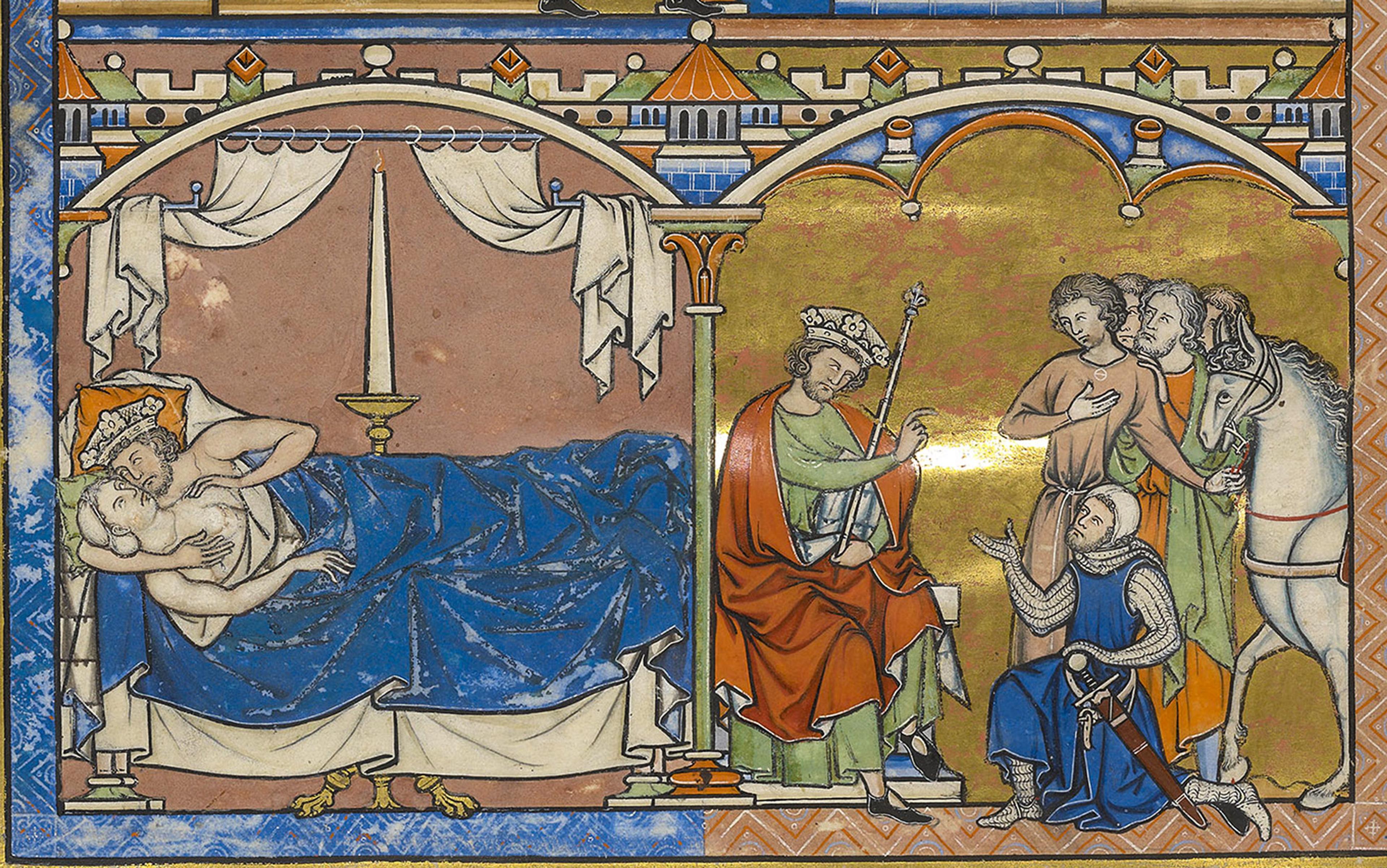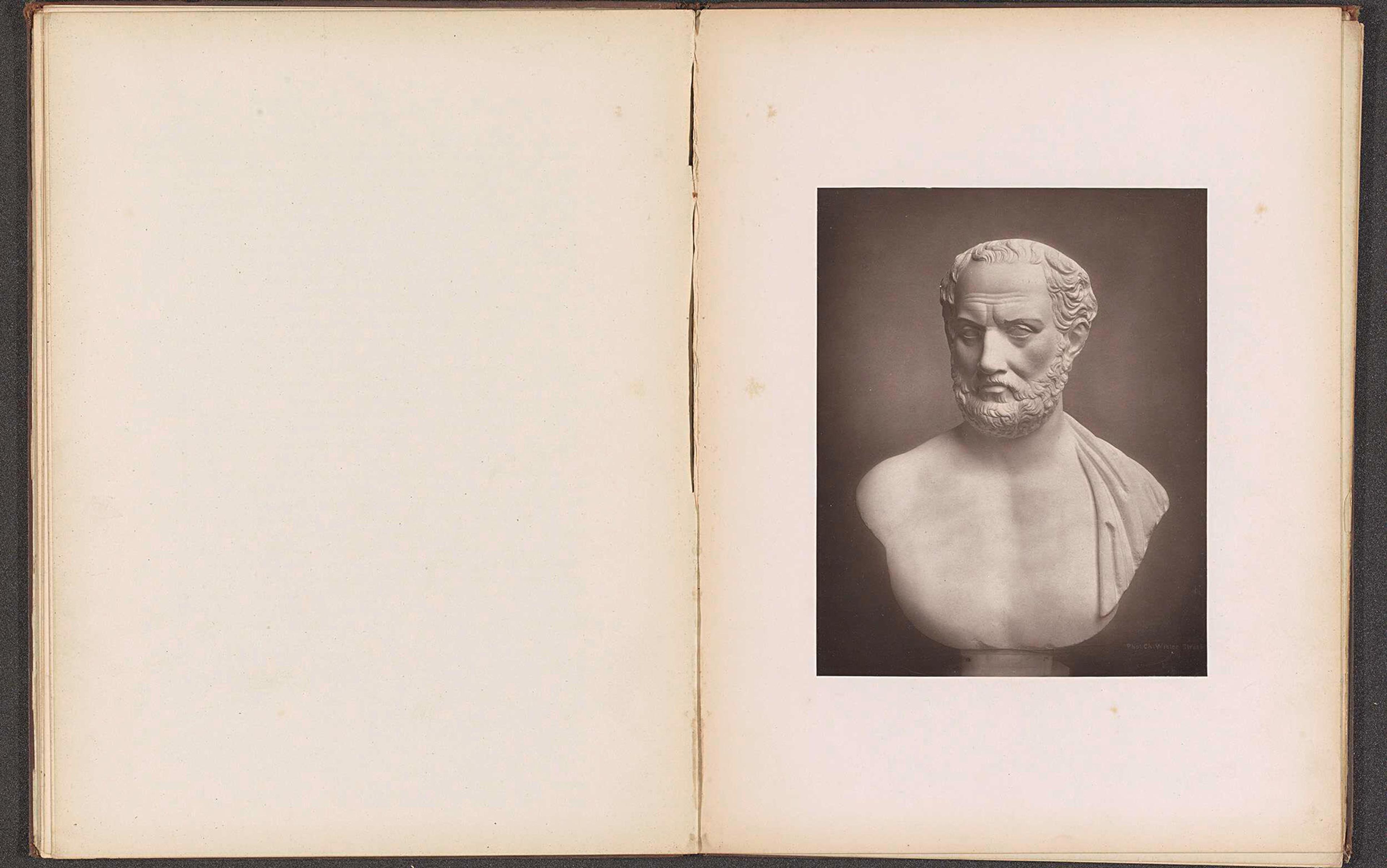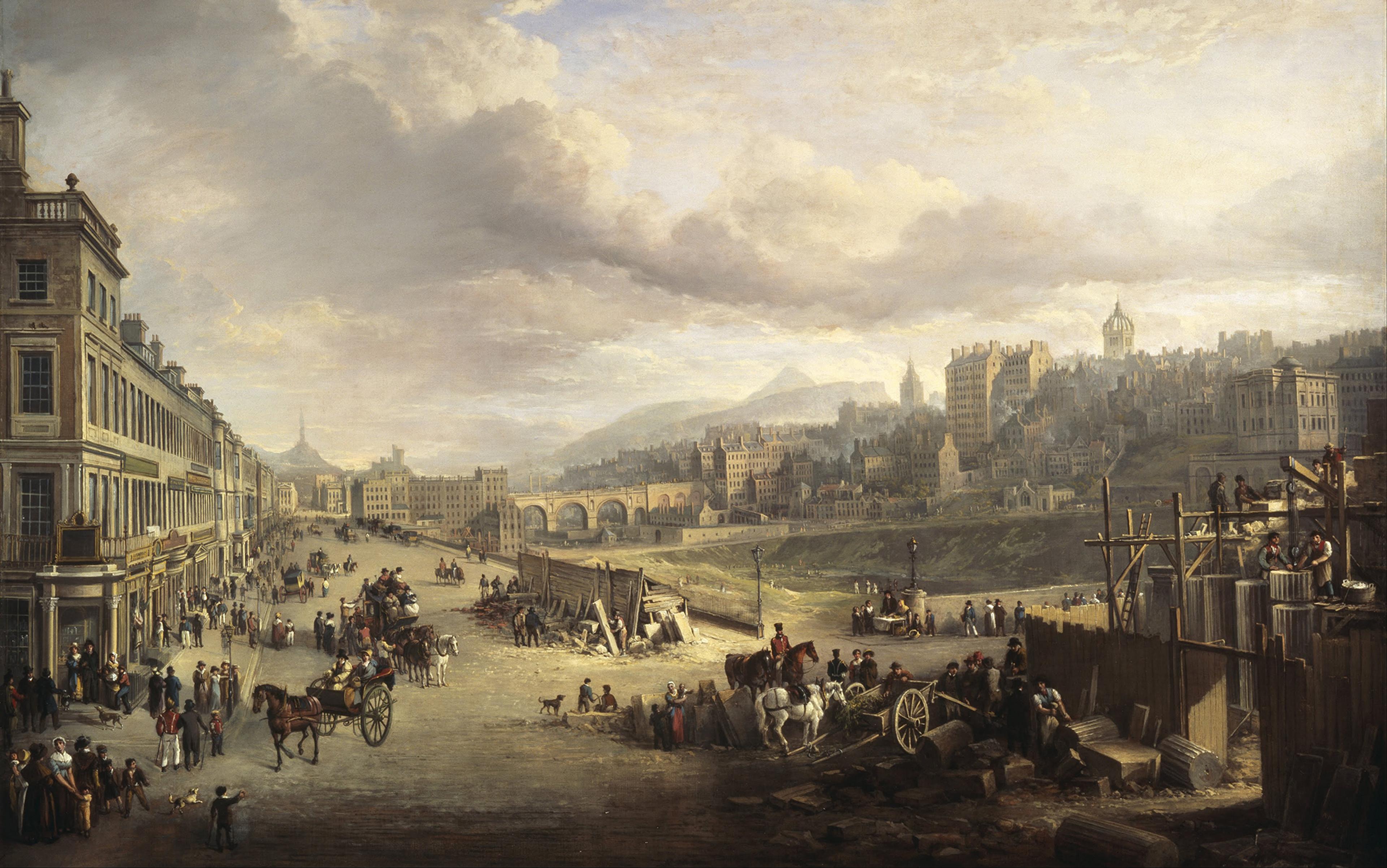If you search for books on leaders in history, you find a recurring cast of characters staring at you from the covers: Winston Churchill. Napoleon. Abraham Lincoln. Genghis Khan. Mao Zedong. They will often be military or imperial leaders, on horses or in uniform or armour, who triumphed in big wars or led their nation through crisis. Keep browsing and you will encounter another variant of works on leadership, featuring prominent figures from the business world. With varying degrees of sophistication, these men (and, sometimes, women) are treated as heroes, role models and inspirations – or, alternatively, as menaces. Business leaders such as Bill Gates or Jeff Bezos are portrayed, whether positively or negatively, as uniquely powerful individuals – able, through sheer force of will or ruthless intelligence, to overcome any obstacles life put in their way.
Such books are celebrations of individualism. Their primary effect is to promote an individualist perspective on the world. They are popular because their political appeal is so wide: liberals can love this perspective on leadership, and so will conservatives and libertarians. Almost everyone, it seems, enjoys a good success story. But you will usually read little in them about all the things that provided the basis for the success stories but which had nothing to do with the protagonists personally, like being born to wealthy parents in a socially and economically stable country with myriad educational and commercial opportunities. The message from this literary cottage industry is that where there’s a will, there’s a way. ‘Leaders’ are ‘winners’. They built themselves up and achieved greatness through their extraordinary qualities. They made their own history.
It is hard to escape this view of leaders and leadership. It is all around us. We still tend to teach, study and celebrate ‘Great Men’. All over the world, people are in search of larger-than-life figures who can lead them past crises and catastrophes, and into a bright future. Perhaps that is why leaders from a supposedly glorious past loom so large in the gloomy present. But how did we get to this dominant view on leadership, with its focus on all-powerful individualism? To answer this question, we must go all the way back to antiquity, where mythology holds the key. We need to revisit the earliest written works in human history and see what kinds of ideas about leadership they implanted in us. And then, we have to see how these early ideas were countered by a new and compelling vision of leadership that remains with us today.
For hundreds of millions of people, the Bible is not just a book, or even just a sacred book, but the source of how to think about the world. It teaches us about kings, gods, wars, human nature and our origins. Its influence can be direct or indirect, depending on whether one is a religious or secular person. But its profound impact on world civilisations – and on us as individuals – is undeniable. This means that, even if you have never read any of it, you have imbibed many of its teachings and values. So how has it shaped us? What lessons on leadership are we meant to draw from it?
The Book of II Samuel, chapters 11 to 18, presents perhaps the most dramatic and bloody story in the Hebrew scriptures. It begins with King David, sitting in his palace in Jerusalem, lazily gazing at a woman bathing in a nearby house. David has his servants bring her to him. The woman, Bathsheba, is married to a Hittite named Uriah, a soldier in the Israelite army, who is off fighting the Ammonites in one of the wars that had helped establish David as a powerful and wealthy king. From her tryst with David, Bathsheba conceives. Eager to hide his deed, David summons Uriah from the battlefield. After feting him in his palace, David sends Uriah to have a conjugal visit with his wife so that he will be assumed to be the father of David’s child. But Uriah ruins David’s plan when he refuses to go to his house, and instead sleeps outside the king’s door. He explains to David that he could not possibly sleep with his wife and feel the pleasures of home while his fellow soldiers are mired in battle. Uriah’s honour and integrity push King David to greater duplicity: he sends Uriah back to the battlefield with a private message to David’s general, Joab, instructing the general to place Uriah in the battle frontline, where he is likely to be killed. And so it happens: Uriah dies – because of a note that he was ordered to take to his commander without knowing its contents. Back in Jerusalem, Bathsheba grieves for her husband, and David soon makes her the newest of his many wives.
One of the things that makes this episode shocking and disturbing is that David is a sacred figure to Jews, Christians and Muslims. His reputation, as such, is of a great and admirable leader, who rose from nothing; a favourite of God, the modest shepherd boy who was ordained by Him to be king; who felled the mighty Philistine warrior Goliath with only a sling and rock; who played the harp for the tormented first king of the Israelites, Saul; who saw the face of God, and spoke to Him, and according to Jewish tradition, his house would be the king of Israel’s in perpetuity, and the Messiah (for Christians, this was Jesus Christ) would come from his lineage. In II Samuel, before his encounter with Bathsheba, David rises to great power and expands his kingdom by triumphing in wars, protected and beloved by God, and always with righteousness.
But in his behaviour towards Bathsheba and Uriah, David is human, not godly – even low and immoral and slothful. He is the exact opposite of what we might expect a great leader to be. He no longer leads men on the battlefield or sets a personal example of modesty and courage, as he once did, but sits in a luxurious palace, a fat cat, a Peeping Tom, while others fight and die on his behalf. So the scriptures give us a darker portrait of David than those who only know him by reputation – as an icon, filtered through mythology or belief – might presume.
David said to Nathan: ‘The man who did this deserves to die!’ Nathan’s response to David is: ‘You are that man’
Soon after Uriah’s death on the battlefield, the direct result of David’s orders to Joab, the Prophet Nathan pays King David a visit. Prophets play a crucial role: they carry the word of God and serve as spiritual authorities. Nathan is thus one of the only people who can speak directly and freely to David, without fear, since it is like God speaking. Nathan tells the king a story about a rich man and a poor man. The rich man had a large number of sheep and cattle, but the poor man had only one little lamb. ‘He raised it, and it grew up with him and his children. It shared his food, drank from his cup, and even slept in his arms. It was like a daughter to him,’ Nathan tells David. One day, the rich man had a visitor and, instead of taking one of his many sheep to prepare a meal for the visitor, he took the one little lamb that belonged to the poor man, killed it, and served it.
The Bible then tells us that, upon hearing this story, ‘David burned with anger against the man’ and said to Nathan: ‘As surely as the LORD lives, the man who did this deserves to die! He must pay for that lamb four times over, because he did such a thing and had no pity.’ Nathan’s response to David is: ‘You are that man.’ And Nathan continues, channelling God’s voice: ‘I anointed you king over Israel … Why did you despise the word of the LORD by doing what is evil in his eyes? You struck down Uriah the Hittite with the sword and took his wife to be your own … Now, therefore, the sword will never depart from your house … Out of your own household I am going to bring calamity upon you.’
Upon hearing Nathan’s words, David collapses in guilt, saying: ‘I have sinned against the Lord.’ Nathan reassures him that God will spare his own life. But, from this point on, David and his family experience a stunning series of tragedies. First, Bathsheba’s baby, David’s son, becomes gravely ill. David and his servants pray and cry and fast, to no avail: the baby dies. (After this, Bathsheba becomes pregnant again – this time with Solomon, whom we are told God loves, and who would eventually succeed David as king.)
The biblical author then recounts the grim episode involving three of David’s older children, Amnon, Tamar and Absalom. Amnon becomes obsessed with his half-sister Tamar. He lures her to his house by pretending to be ill, and asks Tamar to feed him. She does, and offers to feed Amnon cakes of meat, but he declines, instead asking her to lay with him. When she is horrified at the idea and tries to placate him by telling him to speak about his desire with their father, he attacks and rapes her, despite her begging him to stop; once finished, he is consumed with ‘hatred’ for her and throws her out of his house. The devastated Tamar goes to her brother Absalom, who upon learning what happened never speaks to his half-brother Amnon again; we are told that ‘he hated Amnon because he had disgraced his sister Tamar.’
Two years pass. Absalom seems to have moved on (about Tamar we are told nothing). But then through trickery, Absalom manages to gather all the king’s sons – his brothers and half-brothers – and instructs his servants to murder Amnon. When the news gets to King David, he is first horribly misled to believe that Absalom has killed all his male siblings, all of David’s sons. Absalom flees Jerusalem and goes to Geshur, where he stays for three years. David is described as much more sad than angry; he ‘longed to go to Absalom, for he was consoled concerning Amnon’s death.’
The rest of the episode is both moving and shocking. Absalom and David reconcile after three years of estrangement, a tender moment between father and son that inspired great works by artists from Rembrandt to Marc Chagall. But Absalom is soon overcome once again by his demons. He launches a rebellion against his father, who is forced to flee Jerusalem. Eventually, after a bloody war between Absalom’s army and those who remain loyal to David, Absalom is killed in gruesome fashion. David does not celebrate his victory and restoration to the throne; instead, he is shattered, and the episode ends with David wailing in grief: ‘O my son Absalom! My son, my son, Absalom! If only I had died instead of you – O Absalom, my son, my son!’ What are we meant to learn from this horrific tale?
The Bible presents a theological conception of leadership: David is king by divine right, chosen and empowered by God. Earlier, the Hebrews were a wandering people with ‘Judges’ who led them, temporarily, though different hardships and crises. These were not true rulers, but more like guides or military leaders in an emergency. The Israelites, under constant attack by their enemies, especially the Philistines, and aware of the great empires (such as Egypt) that dominated their world, ask the Prophet Samuel to petition God to give them a king, as all their powerful neighbours and enemies had. Samuel offers the people a stark warning about what it is like to be ruled by a king: he will take their sons to be his soldiers, their daughters to be his cooks and perfumers, take over their lands, and enslave the people, and no one will have the right or the ability to stand up to him. ‘When that day comes,’ Samuel warns the Israelites, ‘you will cry out for relief from the king you have chosen, and the LORD will not answer you in that day.’
In other words, God tells the chosen people, once you have a king, there is no going back. The people, undeterred by Samuel’s bleak prophecy (which more than came true), choose to have a king rule over them. And once they do, as Samuel warned them, that power is not meant to be challenged by other men – because the king is God’s choice and rules in his name. That was why regicide (the murder of a king) was considered, well into the early modern era, the worst crime one could possibly commit – it was against the ruler and against God. At the same time, the emergence of a king with earthly power but still under God is a conception of leadership that is constrained by a sort of morality, even if that term did not exist then. David abuses his power, and the biblical author implies that the sorrows and violence that follow are God’s punishment for that original sin. David’s successes and sufferings as king are guided by God.
A religious person might believe that the Bible gives us God’s literal word. But, from a secular perspective, we know that these stories are the product of human beings with human intentions. The story of King David’s fall from grace is an example of the ways that societies have always found to empower certain people to be leaders, attributing to them virtue and handing to them authority – but also, at the same time, to limit the power of those rulers. On the one hand, the conception of leadership found in this story of King David’s crime and punishment gives the leader almost limitless power. On the other hand, it implies that there is a threshold that even he cannot pass; David, as the king, remains subservient to the higher power of God. And so, even if ordinary people cannot check their leaders, God can. And faith in God, worshipping God, doing God’s work, means that the people can be sure of God’s protection from a leader who abuses his or her power. For even a king is beneath the same divine authority as the lowest of his subjects.
The Bible represents a foundational mythology – the works and stories that continue to give so many people a sense of themselves, their world and their history. But these were never merely words. They were bedrock principles for how humans organised their societies, in mostly religious and monarchical fashion, for centuries to come. From the standpoint of political leadership, there really is little difference between King David and ruling monarchs well into the modern era. Through social and economic upheavals, technological advancement, evolving bureaucracies and cultural changes, the basic idea conveyed in the Bible persisted: a king (or sometimes a queen, when there was no male heir to the monarch) ruling through divine authority.
Machiavelli helps usher us into the new world, where the leader makes not only her own destiny, but also history
But in the modern era, even as monarchies continued, there was a major shift in many states and societies, as people began to think of leadership as something independent of God. It’s not simply that societies and people became less religious. It’s that divine authority over society, and people’s lives, lessened. And when that happened, even as most states and societies were still ruled by absolute monarchs, people needed to find new explanations and justifications for leadership. It wasn’t enough to invoke God. In this regard, in the history of how humans have thought about leadership, perhaps no one was more impactful than Niccolò Machiavelli, best known as the author of The Prince, which he wrote in 1513 but which was published only in 1532.
Like the Bible, The Prince is a foundational work; whether one has read it or not, we live in a world that it has helped to shape, directly or indirectly, for better or for worse. Nearly two millennia after the biblical story of David, Bathsheba and Uriah was written, The Prince was still part of a world in which the existence of God was as real to nearly everyone in Europe (and most other places) as the Sun and the Moon. Machiavelli acknowledged that God played some role in human affairs; at various points in The Prince, he seems to take for granted the idea that rulers rose and fell at least in part because of God’s will, and because of ‘fortune’ (which he coupled with ‘God’). But he also claimed that men had ‘free will’ and that while ‘fortune is the arbiter of one-half of our actions’, ‘she still leaves us to direct the other half, or perhaps a little less.’ Elsewhere, Machiavelli recounts several miracles and punishments that God was responsible for, and with which he directed what happened in the world, but adds that: ‘God is not willing to do everything, and thus take away our free will and that share of glory which belongs to us.’
But despite Machiavelli’s grudging acceptance that God still mattered, his prince exists in a new mental universe from the one in II Samuel, one in which leadership is bound not to the supernatural, or to morality, but to objectives. The Prophet Nathan’s parable about the rich man and the poor man and their sheep would be changed under Machiavelli: the prince shouldn’t avoid taking the poor man’s sole sheep because it is an immoral act that would anger God; he should avoid it because such a mean act would make him hated and the people’s hatred would thwart his ambitions. On the other hand, because it is ‘better to be feared than loved’, it is fine, and even desirable, that those under the prince know that he is perfectly capable of taking their sheep (as it were) if they do not do as he tells them – and that he goes through with this punishment when it is necessary. This is a wholly new way of thinking of leadership because it provides a guide for the aspiring leader based not on what is morally right but on how politics works in the real world. Machiavelli, in that sense, helps usher us from the old world to the new, where anything seems possible, and in which the leader makes not only her own destiny, but also history.
Yet even in Machiavelli’s brave new world, in which leaders can supposedly shape their own destinies, not all is possible. Leaders still must deal with quite powerful and resistant things: structures. Systems. Institutions. Other leaders. Adversaries. Enemies. In a Machiavellian world, perhaps the most daunting challenge facing rulers is other people realising that the ruler’s power is not guaranteed and protected by divine authority, so the ruler can be displaced – without incurring God’s wrath. And so, reading about Machiavelli’s prince after reading about King David in the Bible brings us to the big question at the heart of the issue of leadership: does the leader make history or does history make the leader? If we want to understand leadership, and how it works in the world, should we be looking primarily at the ways the leader changed the world? Or should we focus on the ways in which the world produced, and then constrained, the leader?
Some people – let’s call them Machiavellians – are focused on individuals. Some are more focused on the constraints. Karl Marx, for example, in his essay The Eighteenth Brumaire of Louis Napoleon (1852), argued that:
Men make their own history, but they do not make it as they please; they do not make it under self-selected circumstances, but under circumstances existing already, given and transmitted from the past.
The most interesting debate about leadership, then, is between those (like Machiavelli) who believe that leaders make (and overcome) history, and those (like Marx, and like the author of King David’s story) who believe that history makes (and constrains) leaders.
The Machiavellian model probably applies best to leaders who wield superior power, or who have a lot of built-in advantages. If, say, you are a political leader in a functioning democracy and were elected democratically, you have broad legitimacy. If you are a dictator backed by your country’s military and other institutions, or you are the CEO of a large corporation in a country with a political economy designed to serve the interests of large corporations and their CEOs, you will have a lot of choices in how to ‘lead’. This is especially true if, following Machiavelli’s advice, you believe you are free from the constraints of morality, or God’s scolding oversight.
There is a direct line from Machiavelli to the individualistic conception of leadership one sees everywhere today. But how does this view of leaders and their ability to shape reality apply to leaders who are in opposition to power? Leaders are sometimes heads of state or captains of industry, but other times they have considerably less power, trying to constrain the leaders above them in the hierarchy. Perhaps they are whistleblowers exposing corruption or misdeeds inside mighty companies or institutions, or members of an underground group fighting to overthrow a brutal dictator.
Some of the leaders in history who provide us with the most insight and inspiration might not have had formal power or authority. They might not even be famous. They might not have succeeded, and they might not have won. But these leaders often make a lasting impression on us – and the biggest impact. Perhaps this is because the conception of leadership that we find in II Samuel, with its insistence on morality as a constraint on even the most powerful rulers, still has purchase in our world today – and that the message on leadership in the Hebrew scripture has not been entirely overturned by the Machiavellian viewpoint. At least, not yet.
This essay is based on the book Warriors, Rebels, and Saints: The Art of Leadership from Machiavelli to Malcolm X by Moshik Temkin, published by Public Affairs/Profile Books in 2023.






